Some people claim the blue lotus flower offers health perks, such as easing anxiety and improving sleep. Yet it has psychoactive effects, and more study is required to confirm its safety and effectiveness.
Blue lotus flower (Nymphaea caerulea) is a psychoactive aquatic plant, sometimes called the blue Egyptian lotus, blue water lily, or sacred blue lily.
It has a long history in traditional remedies as a natural aphrodisiac, sleep aid, and anxiety reliever. Because it can alter mental states, many are curious about its legal status and whether it’s safe to use.
The U.S. Food and Drug Administration (FDA) has not authorized blue lotus flower for human consumption. As a result, there’s no widely accepted dosing guideline. Additional research is necessary to better understand its potential benefits and applications.
Continue reading to learn key facts about blue lotus flower, including possible advantages, risks, legality, and safety considerations.
Blue lotus flower safetyBlue lotus flower may produce psychoactive responses. It’s wise to consult a physician before using it, as it could have adverse effects, particularly for people with preexisting conditions like mood disorders or schizophrenia, and it might interact with substances such as alcohol or cannabis. More scientific evidence is needed on its health impact.
It is not approved for consumption in the United States. Always verify local and federal regulations before purchasing or trying it.
What is blue lotus flower?
Blue lotus flower is a water lily that primarily grows in Egypt and some regions of Asia.

It carries cultural significance, with depictions found on ancient papyrus and tomb walls. Scholars think it was used in Egypt as a folk remedy for various issues, including anxiety and sleeplessness.
It’s classified as an entheogen, a mind-altering substance believed to shift consciousness for spiritual or ritual purposes. This descriptor is often used instead of “hallucinogenic” or “psychedelic.”
The two primary compounds linked to the flower’s psychoactive and therapeutic properties are apomorphine and nuciferine:
- Apomorphine: A psychoactive agent that works as a dopamine agonist and can produce feelings of joy and mild euphoria. It may also benefit motor control in conditions like Parkinson’s disease and has been studied for erectile dysfunction.
- Nuciferine: A compound believed to have antipsychotic-like effects that promotes relaxation through mechanisms that are not yet completely understood.
Using blue lotus flower can induce a mild “high” and a gentle sense of euphoria. Some users compare it to the feeling from cannabis, though experiences vary widely.
Presently, blue lotus flower isn’t approved for human consumption in the U.S. It is not listed as a controlled substance and can be grown, sold, and bought legally in most places, except Louisiana, where it is prohibited.
Common product forms include teas, flower-infused wines and spirits, and items intended for smoking or vaping. These may be available in specialty wellness shops, vape retailers, or online.
Still, always check local and federal laws about psychoactive plants and consult a healthcare provider before trying them.
Possible benefits of blue lotus flower
Although many claims circulate about the health benefits of blue lotus flower, scientific research is limited.
Traditionally, it has been used both recreationally and medicinally, with proponents asserting it can aid sleep, lower anxiety, help with erectile dysfunction, and serve as a natural aphrodisiac.
While direct evidence is lacking, some scientists theorize these effects stem from apomorphine and nuciferine, which are known to encourage calmness and support motor control.
Additionally, like many botanicals, blue lotus contains a variety of antioxidants, including:
- flavonoids
- quercetin
- kaempferol
- myricetin
Antioxidants contribute to health by neutralizing free radicals, unstable molecules that damage cells. Diets rich in antioxidants are linked with a reduced risk of chronic diseases such as:
- heart disease
- diabetes
- obesity
- certain cancers
Despite its antioxidant profile, there’s no direct research proving that blue lotus reduces chronic disease risk, nor are there studies identifying the ideal consumption method to maximize benefits.
The most reliable way to obtain antioxidants is through a varied diet that includes antioxidant-rich foods, such as:
- vegetables
- fruits
- nuts
- seeds
- whole grains
- green tea
- coffee
Possible downsides of blue lotus flower
Although blue lotus products are sold online and in some stores, significant debate exists about whether it should remain legal because of its psychoactive nature.
The FDA considers the flower unsuitable for consumption but does not list it as a controlled substance, so blue lotus teas, incenses, and oils can be sold legally in many places.
Still, its legal status varies worldwide; it is banned in countries such as Poland, Russia, and Latvia.
While supporters highlight its medicinal potential, scientific evidence is scarce. There’s also a lack of safety data and no standardized dosing.
Because of this uncertainty, consult a healthcare professional before trying blue lotus flower.
Children, pregnant people, and those who are breastfeeding should avoid it due to insufficient safety information for these groups.
Given its psychoactive effects, blue lotus may not be suitable for everyone and should not be combined with other substances like cannabis, alcohol, or medications that act on the central nervous system.
Avoid driving or operating heavy machinery while under its influence.
How to use blue lotus flower
Blue lotus can be consumed in several ways, though data on safety, maximum doses, and potency is lacking:
- Tea: Prepare blue lotus tea using one prepackaged bag or 3–5 grams of dried flowers in 1–2 cups (250–500 mL) of hot water. Steep for 5–10 minutes.
- Smoking: Dried flowers can be rolled in paper and smoked. This method may cause pronounced psychoactive effects and should be approached cautiously. Smoking any material can harm lung and overall health.
- Vaping: Finely ground flowers may be used in a vaporizer. Vaping can also negatively impact lung and general health.
- Alcoholic infusions: Some people soak the flower in wine or spirits. Because safety is unknown, this practice is best avoided.
- Massage and essential oils: Blue lotus massage oils and essential oils are available and can be absorbed through the skin or inhaled. Many claim these forms are milder, though evidence is still needed.
Even with these uses, toxicity and interactions are possible.
A 2023 case report described five military service members who used blue lotus in various ways — including vaping and drinking wine infused with the flower — and who developed symptoms such as:
- paranoia
- agitation
- hallucinations
- unusual behavior
Follow dosage directions on product labels and buy from reputable sources. Discuss product use with a healthcare provider to assess safety.
Also, avoid driving or operating machinery until you know how blue lotus affects you.
If you experience adverse effects or possible toxicity, stop using it and contact a medical professional.
The bottom line
Blue lotus flower has a history of use in ancient Egyptian traditional medicine spanning millennia.
Nowadays, it is often consumed as tea, smoked or vaped, or used as an aromatic oil. Despite numerous anecdotal reports, there’s no solid evidence that it reduces anxiety, improves sleep, heightens sexual desire, or treats erectile dysfunction.
Although legal in many places, blue lotus can cause psychoactive effects and should only be used after consulting a healthcare professional.

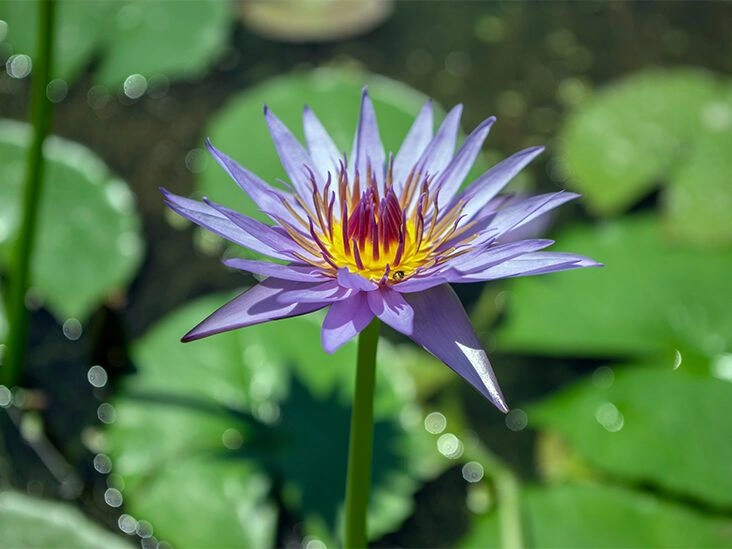

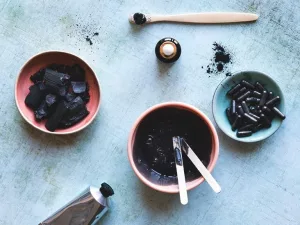


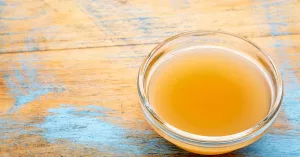


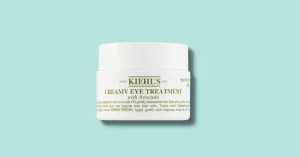
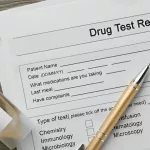





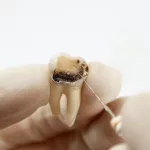








Leave a Reply
You must be logged in to post a comment.